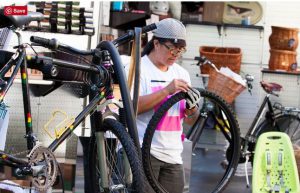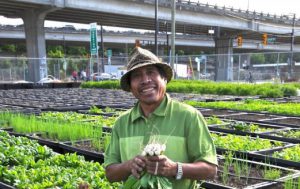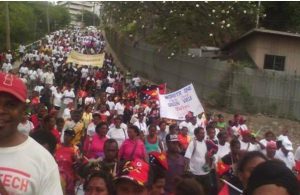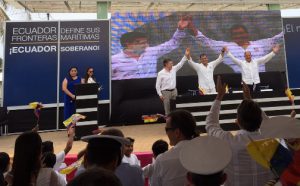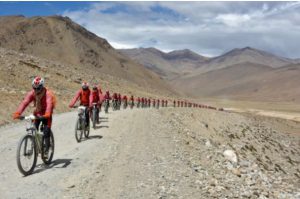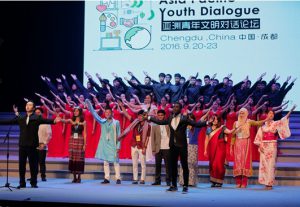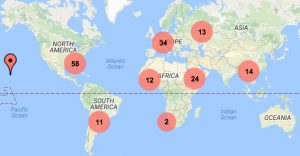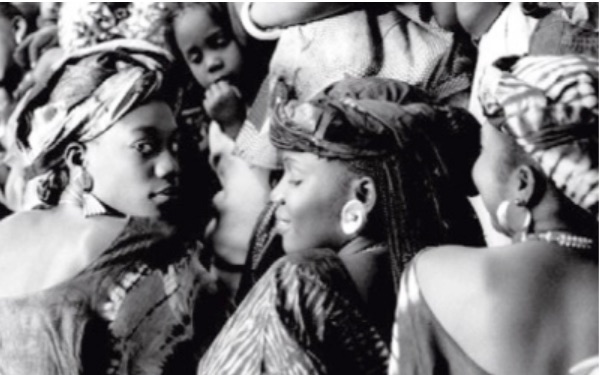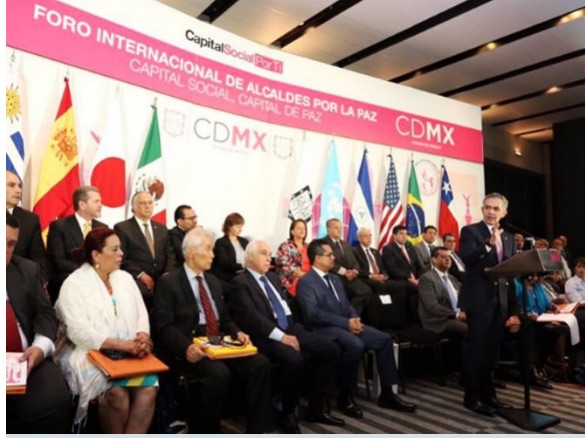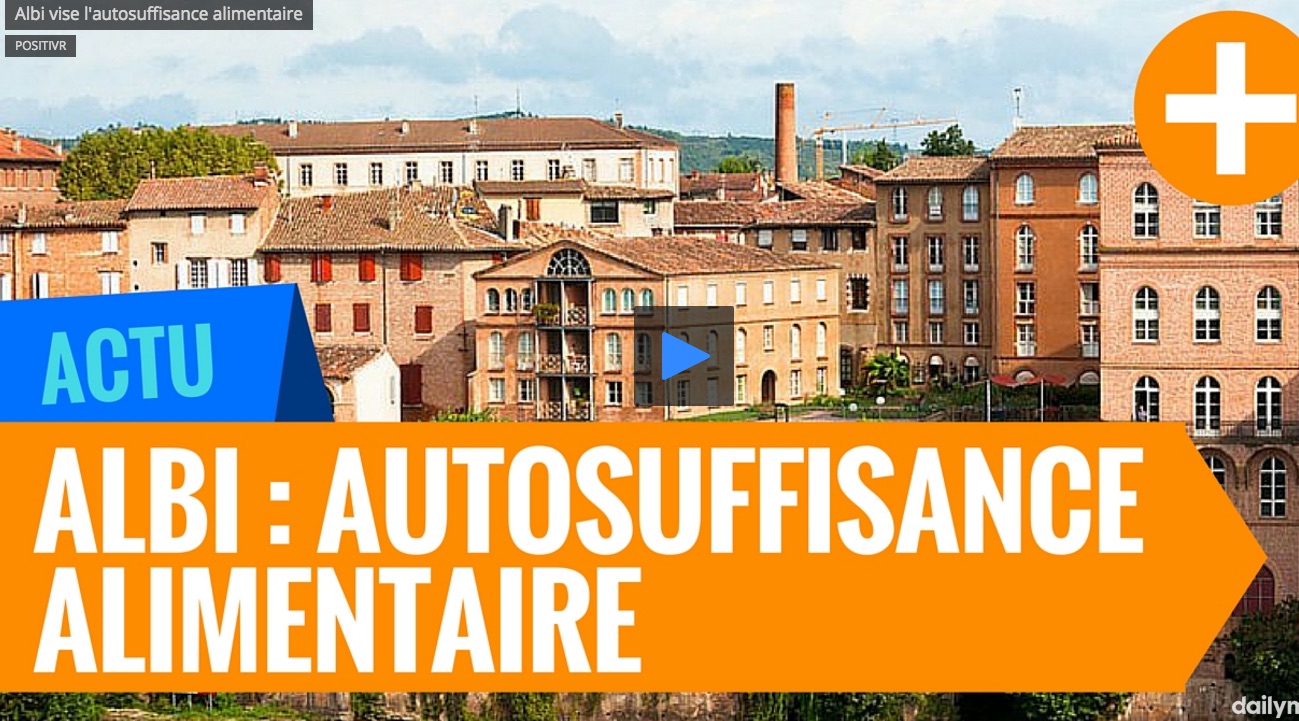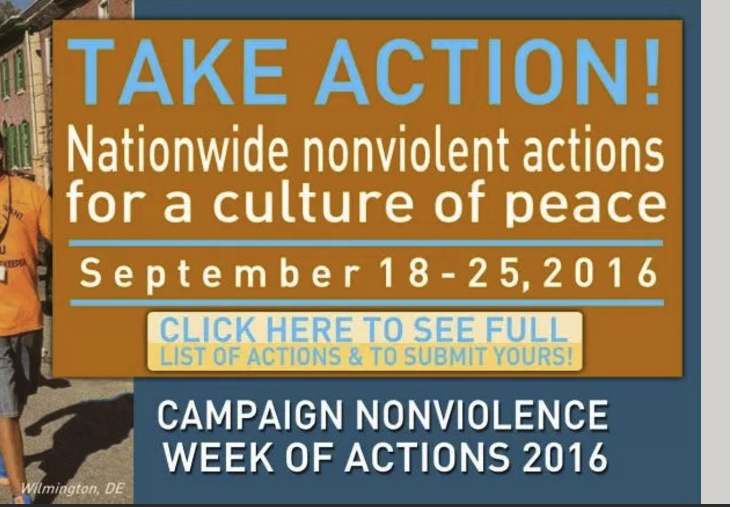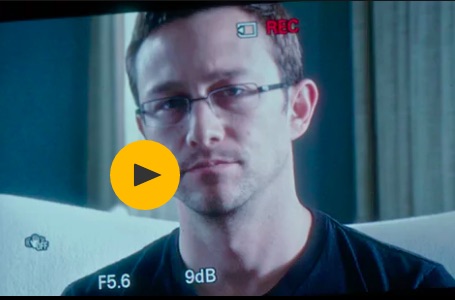EDUCATION FOR PEACE .
An article by Gabriela Amaya from Pressenza (reprinted according to Creative Commons)
With the slogan “Reconciliation is the only path to peace”, on the 1st of October, the eve of the International Day of Nonviolence, hundreds of people formed a human peace symbol in Berlin that then transformed into the symbol of nonviolence, coinciding with the celebration of the day itself in numerous points of the planet.
The event took place within the World Congress of the International Peace Bureau, in Berlin’s Ernst-Reuter-Platz on the initiative of this international news agency.

Click on photos to enlarge
(Image by Pressenza Berlin)
The wellknown form of the peace symbol was transformed at a certain moment into the nonviolence symbol representing the need to advance from the field of pacifism to the field of nonviolence, something which implies the recognition of different forms of violence, not only physical violence whose greatest expression is war, but also economic, racial, religious, generational, sexual, psychological and moral violence among others.
Nonviolence assumes a lifestyle in everyday life which is based on the universal moral principle, “Treat others as you would like them to treat you.”
The words in the mouths of persons of different ages and geographical lattitudes, and the pictures that accompany this text are a better explanation of this meaningful and inspiring act.
Tomorrow, the 2nd of October, the anniversary Gandhi’s birthday, is the International Day of Nonviolence.
We are here today to celebrate it, illuminating the darkness of this moment with the simple light of our phones and with the powerful force of our best aspirations.
There are many people like us in the world, people who have struggled for peace and who believe that violence is not natural and can be surpassed.
And that’s why we are not only in this square in Berlin because around the world, many events are taking place in these days: flash mobs, music, theatre, films, videos, photos for nonviolence, courses in schools, workshops for children and adults, and so on. These events are too many to mention them all, but we want to greet the people and organisations that are raising their voices up for a new Humanism, an historical moment of reconciliation, and a climate of peace and disarmament.
(Article continued in right column)
Click here for article in French or here for article in Spanish)
Can peace be guaranteed through nonviolent means?
(Article continued from left column)
And now we turn our lights on!
In this moment, the living symbol of peace is illuminated by the light of our phones, while we invite you to meditate…
Today we are here to send a sign of support to the millions of people around the world who are demanding peace.
To send a sign of hope for all those who are living in war. To let them know that we haven’t forgotten them.
To send a sign of relief to those who want peace, but who are not yet here with us.
To send a sign to ourselves, so that we never forget the importance and value of what we do.
To send a warning to those who feed wars and violence, so that they know that we are not asleep.
So that they know that a new culture of peace and nonviolence is being born.
And now we are going to form the living sign of nonviolence!
We condemn dehumanisation, oppression and violence in all its forms – physical, economic, racial, religious, ecological, psychological, gender and moral.
We refuse to continue enchained to a mechanical culture of resentment, guilt and revenge, and we launch an intentional, person and social nonviolent revolution.
We will not accept a closed future for human beings and our planet.
We demand the right for all human beings to be happy and free. Free of external and internal ties, free from pain and suffering.
So, connected with what makes us human inside ourselves, let’s take a deep breath and carry it to the depths of our hearts, asking to surpass violence. And from the depths of our hearts, we commit ourselves here to give the best of ourselves to build a culture of peace and nonviolence, seeking what unites us, creating bridges between human beings and working for reconciliation with ourselves, between individuals and entire peoples.
For everyone: Peace, Force and Joy!
